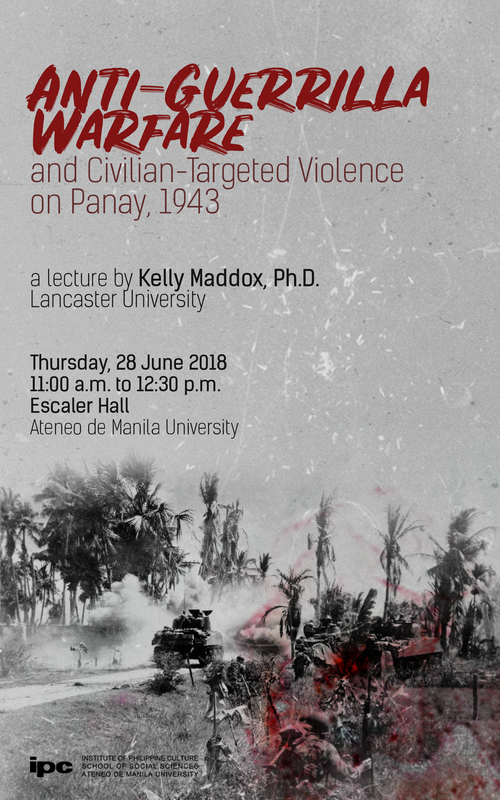
Abstract
Beginning in July 1943, Japanese occupation forces on Panay embarked on an intensive campaign to suppress the guerrilla resistance movement which had flourished in the island since the surrender of USAFFE troops in May 1942. This anti-guerrilla campaign featured high levels of civilian victimisation as the local populace became targets of large-scale violence. The conduct of Japanese troops at this time was a drastic departure from earlier anti-guerrilla strategies which had avoided attacks against the civilian population in favour of pacification policies designed to win their sympathies. As such, this case study offers an opportunity to analyze more closely the radicalization of Japanese military strategy which can be observed, not just in Panay, but in a number of regions when Japanese forces faced resistance, particularly that which employed guerrilla-style tactics, from local populations across occupied Asia. In this talk, the lecturer draws on American, Japanese and Philippine sources to reconstruct the history of anti-guerrilla warfare in Panay to build a more complete picture of the context in which Japanese strategy shifted so dramatically in 1943. The researcher also aims to explain the circumstances that caused Japanese commanders on Panay to embrace civilian-targeted violence as a viable strategy and will consider briefly how this case study relates to other instances of large-scale atrocity perpetrated by Japanese forces in Asia.
About the lecturer
Kelly Maddox obtained her PhD in history from Lancaster University in 2016. Her thesis entitled ‘The Strong devour the Weak: Tracing the Genocidal Dynamics of Violence in the Japanese Empire, 1937-1945’ explored the genocidal character of some instances of mass violence perpetrated by Japanese forces during the Asia-Pacific War. She was a recipient of a scholarship from the Daiwa Anglo-Japanese Foundation in August 2016, which allowed her to spend 18 months in Tokyo improving her Japanese language-ability. As part of the Daiwa Scholarship, she had the opportunity to spend five months as a visiting researcher at Hitotsubashi University where she began work on her current project investigating the role of violence as military strategy in Japanese-occupied Southeast Asia. Since April 2018, she has been continuing this research at Ateneo de Manila University as part of a short-term postdoctoral fellowship funded by the Commission on Higher Education through the Institute of Philippine Culture.
